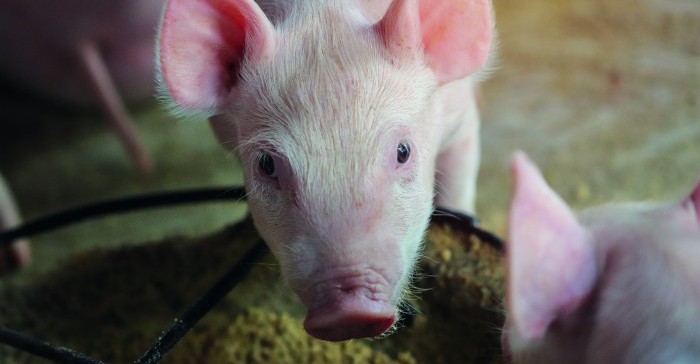Pig producers could have access to zinc oxide products for up to two years longer than originally anticipated, after the UK’s Veterinary Medicines Directorate (VMD) clarified its position on the future of the product.
The marketing authorisations (MAs) of veterinary medicines containing zinc oxide for oral administration to food-producing animals will be withdrawn at EU level on June 26, this year. The VMD said the European Commission’s Implementing Decision on Zinc Oxide in 2017 forms part of retained EU law and is, therefore, part of UK law.
However, following discussions with representatives from across the UK pig industry, the VMD has agreed that zinc oxide products that are QP (Qualified Person) released, and therefore in the supply chain at that date can continue to be used until the end of their shelf life. “This is in accordance with established practice when MAs expire and product is no longer being placed on the market,” the VMD said.
There are two veterinary medicines containing zinc oxide authorised for oral administration to food-producing animals.
The VMD said: “Together with the pig sector, we have been working to explore how withdrawal of these MAs can be implemented in a way that does not lead to an increase in antibiotic use or a decrease in the health and welfare of weaned piglets.
“We recognise the hard work and progress the pig sector has already made to prepare for the withdrawal of the MAs.”
The Allied Industries Confederation (AIC) welcomed the statement and said that this effectively means pig producers can continue to use Zinc Oxide for ‘up to two years beyond June 2022’ subject to availability.
“This means that zinc oxide veterinary products that are QP released by June 26, 2022, and therefore in the supply chain and available for sale to feed compounders, can continue to be used until their end of shelf life,” it said.
AIC has asked its members that the distribution of available stocks of zinc oxide is carried out ‘in a fair and equitable manner in order to best serve the interests of the wider industry’.
“AIC will continue to encourage members and their FAR registered feed advisers to work with their pig producer customers and prescribing vets to help the transition away from zinc oxide at the earliest opportunity so that diminishing supplies remain available for those pig producers where the use of zinc oxide remains essential for a slightly longer period,” it said.
Breathing space
NPA chief executive Zoe Davies welcomed the VMD’s statement, which she said will give the pig sector much-needed breathing space beyond June 2022. She highlighted the ‘incredible effort’ put in behind the scenes with the VMD, particularly by Grace Webster and Paul Thompson, of the Pig Veterinary Society and Paul Toplis from the AIC in helping to secure this agreement.
“This is good news for the pig sector and will help some businesses that might struggle to cope without zinc oxide in piglet feed,” Dr Davies said.
“The key point is that the VMD have stressed that there is no blanket ban on zinc oxide – but a withdrawal of the market authorisation for existing products containing it, which is a very subtle but important shift in interpretation of the rules.”
But she said there was no guarantee at this stage over how much zinc oxide would be available to pig producers post-June 2022.
“The full impact of this will depend on the volume of orders feed companies put in over the next few weeks – there is no guarantee at this stage that there will be enough for all producers in stock until 2024,” Dr Davies added.
“The VMD has made it clear, however, that the industry should only use zinc oxide where current tools have not been sufficient to control Post Weaning Diarrhoea on farm, so our advice is very much for all parts of the supply chain to continue preparing for life beyond Zinc where possible.”
The VMD did leave the door open to new products containing zinc oxide to be authorised provided they meet the criteria and pass the environmental impact modelling – however, this concept still needs to be explored with manufacturers.




